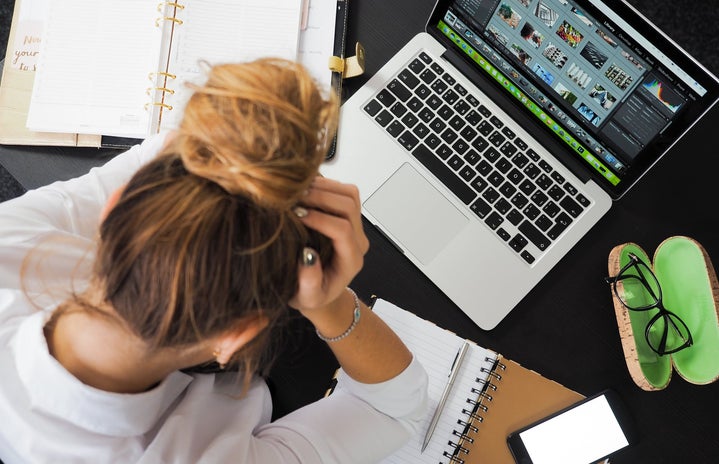All of us have made the transition to learning at home, and whether you love it or hate it, it’s safe to say that it was an unexpected transition for the majority of us. Most of us have spent the bulk of our lives attending in-person classes, where we can actively ask questions, connect with our classmates, and learn in a classroom setting designed for education. Now, many of us are forced to learn in environments that aren’t exclusively allotted for schooling. Instead of doing our homework in the peaceful halls of Suzzallo Library, many students are forced to study in noisy and unpleasant home environments. A lot of students do not have desks designated for schoolwork and must resort to studying in the same place that they sleep. Many students may have poor Internet access that inhibits them from attending classes or accessing resources effectively. Students living across the nation or in other countries may even have to wake up at odd hours of the late night and early morning to attend class, speak with their professors in office hours, or take their exams. And through this all, we are still expected to maintain good grades and attend to schoolwork, exerting the same effort as usual. But for many students, grades and school performance are far from a priority. For many students, searching for work, sourcing food, bringing supplies to family members, combatting heightened mental health issues, and coping with living in isolation has taken precedence.
While we are all likely grateful that our education is continuing, it’s worth addressing that the situation we are in is highly novel. We are learning differently, and we should be evaluated differently as a result. Yes: this situation is temporary, but certainly taxing. All that we can do as students is perform to the best of our abilities while practicing needed self-care. Here are some tips for bringing this to fruition:
Planning: I find that starting each of my school days with a to-do list of the top 3-5 tasks I want to accomplish is an effective strategy for making me productive each day. I like to record my to-do lists in a daily planner and organize a weekly planner to give myself a broad overview of what each week looks like. For more tips on journaling and planning check out this article!
Utilize the resources that you can: Even though many on-campus resources are closed, there are still many online resources that you can use to enhance your learning. One of my personal favorites is the Odegaard Writing and Research Center. There are also study sets and flash cards online for many classes at UW. Check out Quizlet and StudyBlue for some helpful study materials or create your own!
Separate your working space from your relaxing space: If you are able to, it’s helpful to study in a different space than where you typically relax. I find that when I do my homework while sitting in my bed, I have a hard time falling asleep that night because my brain associates my bed with school. If you don’t have a table or desk at your disposable, try creating a cozy study corner in your room, by arranging some pillows on the ground to sit on or lying a blanket down. Re-arranging your space can help increase your productivity, boost your mood, and keep things feeling fresh.
Express your emotions: I think taking time to acknowledge how you’re feeling each day, positive or negative, is a great way to become more self-aware and feel more in control of your feelings. I like doing this by journaling about my day and the emotions I felt throughout it.
Practice mindfulness: Whenever I am feeling stressed or overwhelmed by what’s going on around me, I find it helpful to slow down and practice some mindfulness techniques. This can look differently for everyone, but I like closing my eyes, taking deep breaths, and tapping into each of my senses. I pay attention to what I see, hear, smell, taste, and feel around me. I also enjoy taking a couple minutes to meditate to clear my head. Some apps that have I have found helpful for meditation and mindfulness are Headspace and Sanvello.
Take a break! Just because we have more free time on our hands doesn’t mean we need to dedicate it all to school! Take breaks to exercise, cook yourself a nice meal, call your friends, or spend time with your family. We all deserve it now more than ever!
While school is definitely an important aspect of all of our lives, it’s okay if it’s not the most part at the moment. Try your best to get the most out of your classes that you can and find a comfortable school routine for yourself. But don’t forget to put just as much, if not more, time and effort into yourself.


